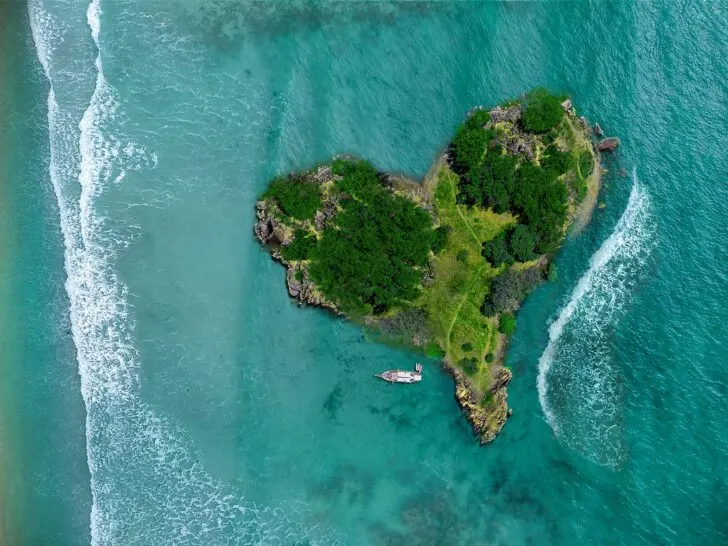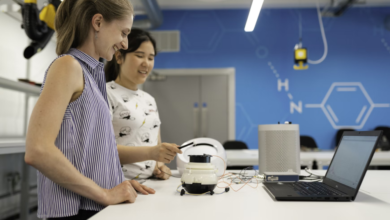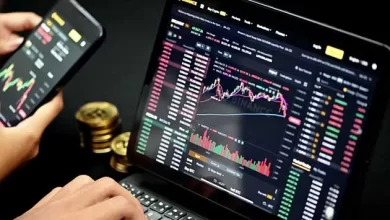Vikki Nicolai La Crosse, WI Examines How Technology is Boosting Volunteer Tourism for Environmental Conservation

In recent years, the intersection of technology and volunteer tourism has created unprecedented opportunities for environmental conservation. The need for effective conservation efforts has never been greater as the world grapples with climate change, deforestation, and biodiversity loss. Volunteer tourism – also known as voluntourism – has emerged as a powerful tool in addressing these challenges. By leveraging technology, expert Vikki Nicolai La Crosse, WI says that this form of tourism empowers individuals to make meaningful contributions to environmental conservation while experiencing the natural world in new and profound ways.
The Rise of Volunteer Tourism
Volunteer tourism combines travel with volunteer work, allowing participants to contribute to a cause while exploring new cultures and environments. This concept has gained popularity due to its dual benefits: it provides much-needed support for various projects while offering volunteers unique and enriching experiences.
Environmental conservation is a key focus of many volunteer tourism programs. From reforestation projects and wildlife monitoring to marine conservation and habitat restoration, volunteers are actively involved in initiatives that aim to protect and preserve the natural world. As the demand for these experiences grows, so does the need for innovative solutions to enhance their impact. This is where technology comes into play.
Technology-Driven Innovations in Volunteer Tourism
1. Digital Platforms and Apps
One of the most significant ways technology boosts volunteer tourism is by developing digital platforms and apps. These tools connect potential volunteers with conservation projects worldwide, making finding and engaging in meaningful work easier.
Websites like Volunteer World, Workaway, and GoEco offer extensive databases of volunteer opportunities, complete with detailed descriptions, requirements, and reviews. These platforms streamline the process of finding suitable projects, ensuring that volunteers can match their skills and interests with the needs of conservation initiatives.
Mobile apps enhance the experience by providing real-time updates, logistical support, and communication channels. For example, apps like Travel Buddy and Volunteer Forever allow volunteers to connect with fellow travelers, share experiences, and receive important information about their projects.
2. Remote Sensing and GIS Technology
Remote sensing and Geographic Information Systems (GIS) technology have revolutionized environmental monitoring and conservation efforts. Conservationists can gather crucial data on ecosystems, wildlife populations, and environmental changes using satellite imagery and aerial drones.
Volunteers play a vital role in collecting and analyzing this data. Equipped with smartphones and tablets, they can upload geotagged photos, record observations, and contribute to large-scale monitoring projects. This real-time data collection allows for more accurate conservation needs and progress assessments.
For instance, initiatives like Global Forest Watch use satellite data to monitor deforestation and forest degradation. Volunteers on the ground can verify this data, report illegal activities, and contribute to reforestation efforts. Similarly, marine conservation projects utilize drones to survey coral reefs, track marine species, and identify pollution sources.
3. Citizen Science and Crowd-Sourced Data
Citizen science – involving the public in scientific research – has gained momentum thanks to technological advancements. Many conservation projects now rely on crowd-sourced data collected by volunteers to monitor and protect biodiversity.
Apps like iNaturalist and eBird enable volunteers to document their observations of plants, animals, and habitats. Victoria Nicolai explains that these platforms aggregate the data, creating valuable datasets that scientists and conservationists can use to track species distributions, monitor population trends, and identify areas needing protection.
For example, iNaturalist allows users to upload photos and descriptions of any living organism they encounter. Experts then validate this information and contribute to a global database of biodiversity. Similarly, eBird encourages birdwatchers to record their sightings, helping to map bird populations and migration patterns.
4. Virtual Reality and Augmented Reality
Virtual reality (VR) and augmented reality (AR) technologies transform how volunteers experience and contribute to conservation efforts. These immersive tools offer unique education, training, and remote participation opportunities.
VR can transport volunteers to remote and ecologically significant locations, allowing them to explore and understand ecosystems without physical presence. This technology is particularly valuable for raising awareness and supporting conservation projects. For example, VR experiences that showcase endangered habitats or wildlife can inspire people to take action and contribute to preservation efforts.
AR, on the other hand, enhances real-world experiences by overlaying digital information onto physical environments. Volunteers can use AR apps to identify plant and animal species, learn about their ecological roles, and receive guidance on conservation tasks. This interactive approach makes volunteering more engaging and educational.
5. Blockchain for Transparency and Accountability
Blockchain technology is increasingly integrated into volunteer tourism to enhance transparency and accountability. By creating immutable records of transactions and activities, blockchain ensures that donations, funding, and volunteer efforts are accurately tracked and reported.
Volunteers and donors can verify how their contributions are used, ensuring that resources are allocated effectively. This transparency builds trust and encourages more people to participate in and support conservation projects.
For instance, platforms like BitGive use blockchain to provide transparent donation tracking, allowing donors to see exactly how their funds are utilized. Similarly, conservation organizations can use blockchain to track the progress of volunteer projects, ensuring that commitments are met and goals achieved.
The Future of Technology-Enhanced Volunteer Tourism
As technology continues to evolve, Vikki Nicolai La Crosse, WI points out that its limitless potential to boost volunteer tourism for environmental conservation. Emerging technologies such as artificial intelligence, machine learning, and the Internet of Things (IoT) will further enhance data collection, analysis, and decision-making processes.
AI-powered tools can analyze vast amounts of data collected by volunteers, identifying patterns and trends that inform conservation strategies. Machine learning algorithms can predict environmental changes and recommend adaptive measures. IoT devices, such as sensors and cameras, can provide real-time monitoring of ecosystems, allowing for swift responses to threats and disturbances.
Furthermore, integrating social media and digital storytelling will amplify the reach and impact of volunteer tourism projects. Volunteers can share their experiences, raise awareness, and inspire others to join the cause. Virtual reality documentaries, live-streaming from project sites, and interactive online platforms will create immersive experiences that foster global engagement and support conservation efforts.
Conclusion
Technology is driving the evolution of volunteer tourism for environmental conservation. Digital platforms, remote sensing, citizen science, and virtual reality empower volunteers to make a meaningful impact on our planet. Victoria Nicolai La Crosse says the synergy between volunteer tourism and conservation will strengthen as we harness technology. By embracing these advancements, we can create a sustainable future and ensure the natural world thrives for generations.





